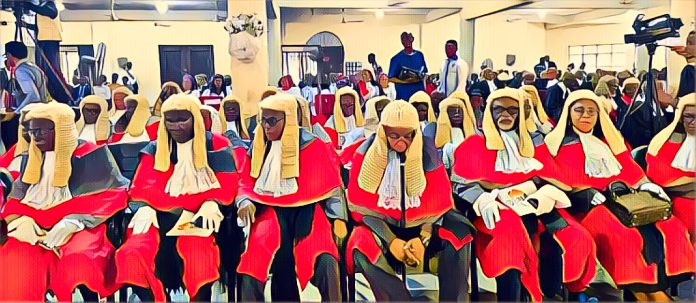KEY POINT
- Cross River magistrates launch an indefinite strike over welfare demands.
- Magistrates seek promotions, better pay, and improved working conditions.
- The strike could delay justice and create a backlog of cases.
Magistrates in Cross River State, Nigeria, have embarked on an indefinite strike starting Monday, December 9, 2024, after a series of failed negotiations with the state government. The strike, led by the Magistrates Association of Nigeria (MAN), seeks to compel the state to meet a range of demands centered on magistrates’ welfare, career progression, and improved working conditions.
According to the leadership nigeria, the magistrates had earlier issued a seven-day ultimatum on November 5, 2024, listing eight key demands. These demands include the implementation of outstanding promotions, payment of arrears of financial benefits, provision of official vehicles and accommodation, and renovation of dilapidated courtrooms. After the government failed to act within the ultimatum period, the magistrates initiated a three-day warning strike from November 27 to November 29, 2024.
Despite pleas from Governor Bassey Otu for them to suspend the action, the magistrates insisted that their issues had been ignored for too long. With no response from the state government, the association declared an indefinite strike.
Government urged to resolve cross river magistrates strike
The Cross River magistrates strike has sparked calls for immediate intervention from civil society groups and legal experts. The Nigerian Bar Association (NBA) has urged the state government to engage in meaningful dialogue with the striking magistrates to avoid a full-scale collapse of judicial activities in the state.
According to the cable, the magistrates argue that the state government has not prioritized the welfare of judicial officers, despite several promises made earlier in the year. During a media address, a spokesperson for the magistrates stated, “We are tired of working under poor conditions while being denied our rightful promotions and entitlements. We can no longer endure this neglect.”
The state government, however, maintains that budgetary constraints have delayed the implementation of the magistrates’ demands. Officials from the Office of the Attorney General of Cross River State noted that discussions were still ongoing, and they expressed hope that a resolution could be reached soon.
Legal experts warn of impact on access to justice
The impact of the Cross River magistrates strike is already being felt across the state’s judicial system. Courtrooms remain closed, leaving litigants, lawyers, and citizens with pending cases stranded. Legal experts have warned that the indefinite strike could result in a backlog of cases, delayed trials, and prolonged detention for suspects awaiting trial.
A statement from the Nigerian Bar Association (NBA) criticized the government’s inaction, calling it “a threat to the rule of law and access to justice.” The NBA emphasized that magistrates play a critical role in the administration of justice, as they preside over cases involving civil, criminal, and family matters.
Legal practitioners have also noted that the indefinite nature of the strike means there is no clear timeline for resumption. Until the state government addresses the magistrates’ demands, many court users will face prolonged delays in the resolution of their cases.
The situation has raised broader questions about the state of Nigeria’s judicial system, where judicial officers often face difficult working conditions, delayed salaries, and lack of basic facilities. The ongoing strike serves as a reminder of the persistent challenges faced by judicial officers and the importance of prioritizing welfare and operational support for the judiciary.
The strike underscores the importance of dialogue, with many observers calling on the Cross River State government to expedite negotiations to restore normalcy to the judicial system. Until then, access to justice for ordinary citizens will remain severely restricted.



